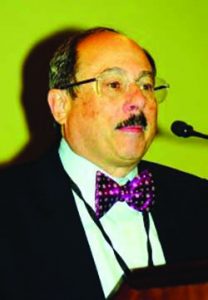By Dave Workman | Senior Editor
 Three years after Seattle’s controversial “gun violence tax” on the sale of firearms and ammunition in the city, revenue from the tax has declined even further and the number of homicides reported in the city has steadily climbed.
Three years after Seattle’s controversial “gun violence tax” on the sale of firearms and ammunition in the city, revenue from the tax has declined even further and the number of homicides reported in the city has steadily climbed.
That prompted the Second Amendment Foundation, which unsuccessfully sued the city along with the National Rifle Association and National Shooting Sports Foundation to stop the tax, to declare that the scheme was a “dismal failure.”
In 2015, when the tax was championed by then-Seattle Councilman Tim Burgess, he predicted it could bring in between $300,000 and $500,000 annually. The revenue would have been used for “gun violence research” and other projects aimed at reducing or preventing crime, under the Burgess plan, which was also championed by then-Mayor Ed Murray.
However, it was far too rosy a forecast, as things turned out. Last year the tax, which levies a $25 fee on the sale of every firearm and a 5-cent tax on each round of centerfire ammunition, brought in a comparatively paltry $77,518. That was down more than $15,700 from the 2017 revenue of $93,220.74, which was more than $10,000 below the $103,766.22 collected in 2016, the first year of the tax.
The embarrassing shortfall was not released voluntarily. TGM had to file a Public Records Act (PRA) lawsuit, supported by SAF, to compel the city to report the revenue data. Initially, the city tried to satisfy the PRA request by reporting that the 2016 revenue was “less than $200, 000,” but TGM remained firm, citing the public’s right to know and other First Amendment concerns. When the first year’s revenue figure was released after a King County Superior Court judge ruled against the city, other news agencies also reported the shortfall.
During the same period, beginning in 2016, the first full year the tax was in effect, Seattle logged 18 homicides, which is a remarkable number for a city of its size and population. The following year, according to Seattle police crime data, the body count jumped to 28. Last year, the city reported 32 murders.
“Seattle residents were promised pie-in-the-sky,” said Alan Gottlieb, SAF founder and executive vice president, “and so far, they haven’t even gotten a decent crust. We fought this gun tax in court because we felt, and still do, that it violates the state preemption law. We were also convinced, and remain so today, that the revenue predictions were deceptive, if not downright delusional.”
The liberal state Supreme Court upheld the tax, despite language in the state’s 35-year-old preemption law that should have prevented such a tax. Here’s what the law says:
“The state of Washington hereby fully occupies and preempts the entire field of firearms regulation within the boundaries of the state, including the registration, licensing, possession, purchase, sale, acquisition, transfer, discharge, and transportation of firearms, or any other element relating to firearms or parts thereof, including ammunition and reloader components. Cities, towns, and counties or other municipalities may enact only those laws and ordinances relating to firearms that are specifically authorized by state law, as in RCW 9.41.300, and are consistent with this chapter. Such local ordinances shall have the same penalty as provided for by state law. Local laws and ordinances that are inconsistent with, more restrictive than, or exceed the requirements of state law shall not be enacted and are preempted and repealed, regardless of the nature of the code, charter, or home rule status of such city, town, county, or municipality.”
While the gun tax is not in any way responsible for the spike in homicides, Gottlieb noted that it does show that the gun control scheme has essentially driven business out of the city, while doing nothing to reduce violence, or prevent the murder rate from nearly doubling in the three years of its existence.
Gottlieb suggested that the gun tax be repealed and that it should be allowed to “fade into the dust bin of municipal history.”



